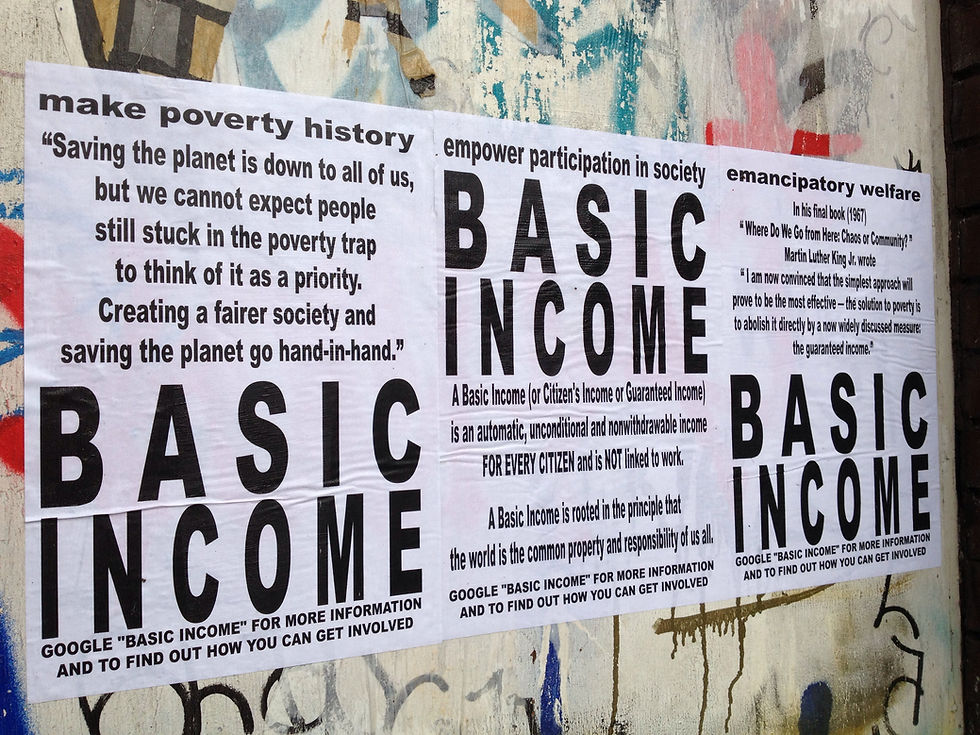Pro-Choice Protests Emerge in Poland
- Willow March
- Nov 7, 2020
- 3 min read
Updated: Dec 23, 2024
On October 22nd, the constitutional court of Poland set out a new law that would tighten restrictions on abortion. It was ruled that abortions would only be legal in cases of rape and incest, and if the woman's life is at risk. This means that women who seek terminations due to foetal abnormalities would be in violation of the constitution.
Before the new laws, Poland already had some of the tightest abortion laws in Europe, having overseen a total of just over 1000 legal terminations in 2019, with many women travelling overseas to have abortions elsewhere. Women's rights groups estimate between 80,000 and 120,000 Polish women seek abortion abroad each year.

The tribunal's president, Julia Przylebska, said that allowing abortions for foetal abnormalities legalized "eugenic practices". She added that termination based on the health of a foetus amounted to "a directly forbidden form of discrimination", as Poland's Constitution guarantees the protection of human life.
These new laws sparked the biggest protests that Poland has seen post-communism, despite the pandemic. Hundreds of thousands of people, predominantly women but joined by thousands of men and other groups, marched through the streets of Warsaw, rallying for their rights. Many of the signs read "this is war", "my body my choice" and "abortion is healthcare". Protesters have found themselves amongst arguably-unlikely allies, such as taxi drivers, farmers and coal miners, all with their own objection to the government.
Many demonstrators have dressed as characters from the dystopian novel The Handmaid's Tale. Pro-choice supporters ignored coronavirus restrictions, which currently forbid gatherings of more than five people, to take to the streets, storm buildings, and express their fury.
"Protesters are demanding that the court reverse itself, and a growing number are also calling for liberalisation of the abortion law" - Monika Pronczuk
Many women say that they are being used as pawns to distract from the Polish government's handling of the COVID-19 pandemic, which has left more than 7,600 people dead. With cases surging and hospitals overflowing over the past month, Poland has become one of the countries worst-hit by coronavirus. The president, Andrzej Duda, tested positive on Saturday.
The governing party in Poland presents itself as the defender of traditional and Catholic values; central to that vision, Polish women are perceived as wives and mothers. As a result, women's rights groups operating in Poland are thought to be dangerous. The Catholic church, perhaps the most influential of all in Polish society and government, has continually pressured the government to tighten laws on, or eliminate all access to, abortion. On Sunday, women's march protesters disrupted church services all over Poland, using anti-church banners and slogans that read things like "we have had enough".
One protester, Anna, had a sign that read "people before embryos". She said: 'I'm here because my sense of helplessness has reached its peak. I feel unimportant, I feel less like a Pole and I feel really sad about that.' She also said that the new laws were part of a broader erosion of their individual freedoms.
As a result of these protests, president Andrzej Duda, suggested that he was open to a compromise. After meeting with women and experts, he submitted a "proposal of changes" to parliament.
The government has indefinitely delayed implementation of the new laws for now, as a response to two weeks of the largest protests Poland has seen since 1989. For the change to take effect under ordinary procedures, the government would have to publish the ruling by the second of November. The government could still publish the decision at any time, though legal experts say that would violate the constitution.

_edited.png)



Comments